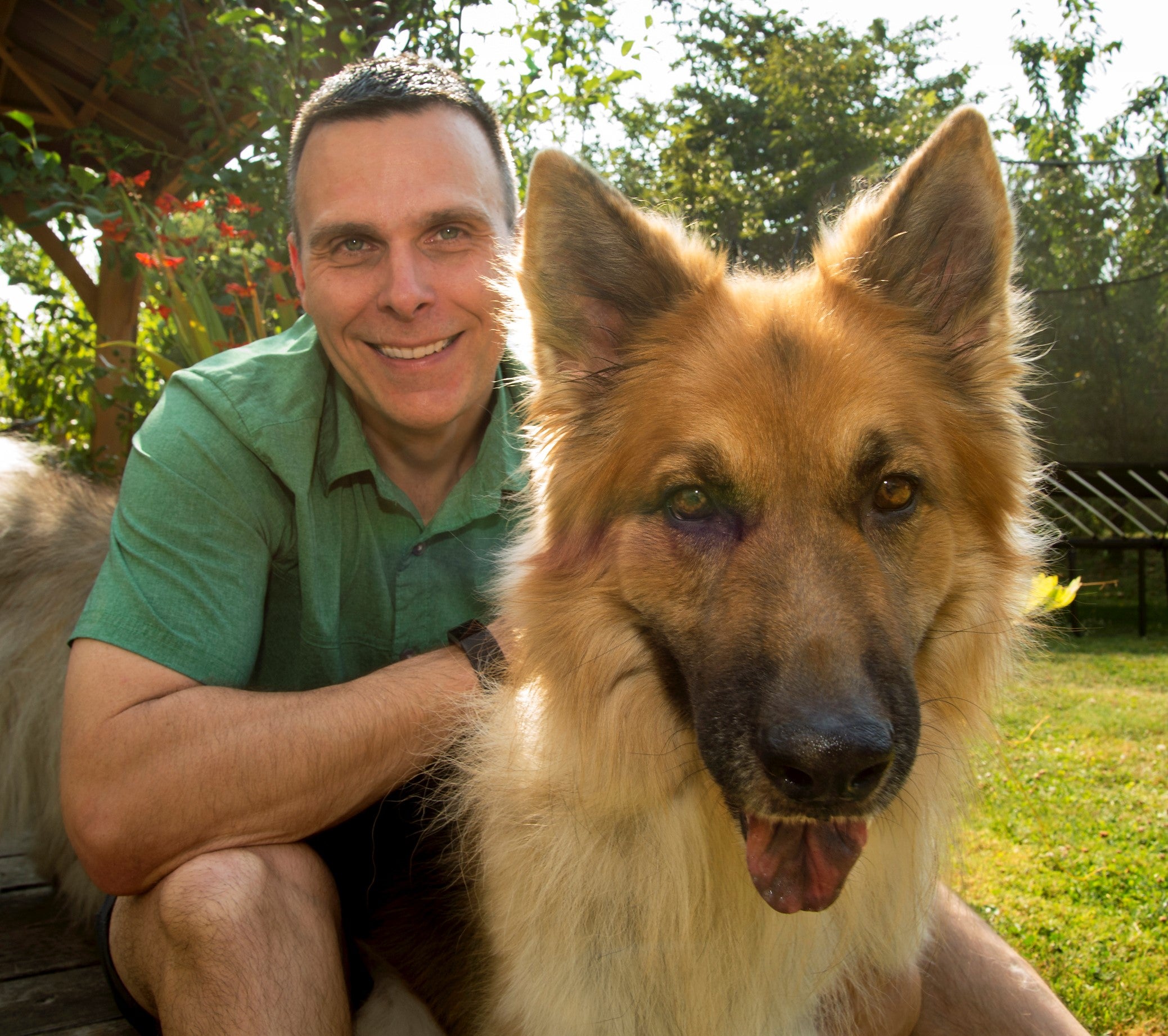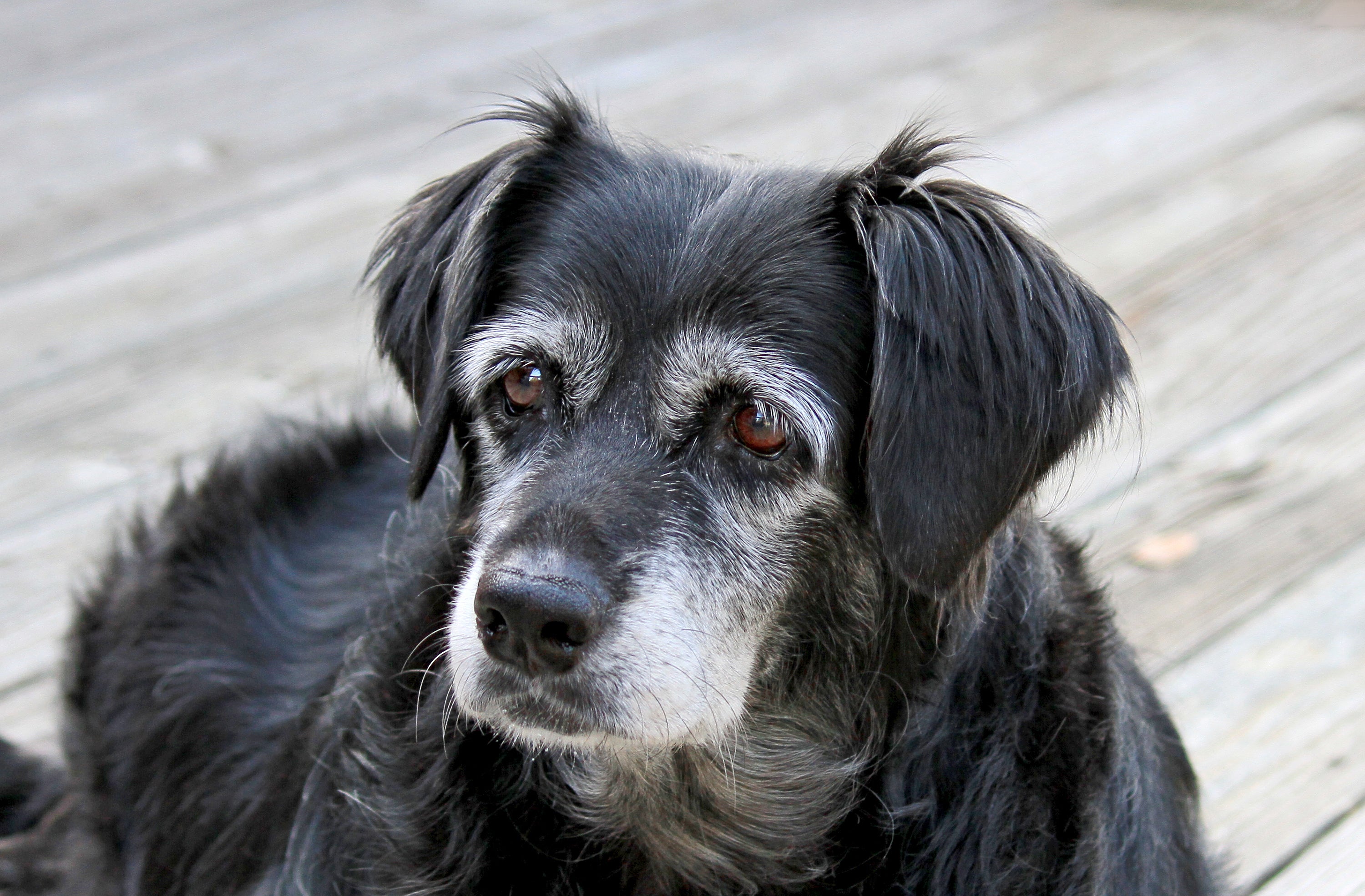Clinical trials on dogs could extend human lives
Researchers are looking for a medication to delay old age and man’s best friend might hold the key, reports Sean Smith


They've been our constant companions for thousands of years but dogs may be about to confirm their status as our best friends by helping us live longer, healthier lives. Pioneers in the new field of anti-ageing biotechnology are trying to extend the healthy lifespan of dogs as a precursor to one day doing the same for their human owners.
Celine Halioua is CEO of Loyal, the Silicon Valley veterinary medicine company trying to prove that “ageing is druggable” and that prevention is better than a cure. Halioua argues that by developing drugs to treat the array of chronic illnesses that afflict us in old age, conventional pharmaceutical companies are reduced to playing whack-a-mole. If you successfully treat one illness, another will inevitably raise its head.
Not only do the drugs have to work but they also have to reverse the damage that the diseases have already wrought. In contrast, anti-ageing researchers such as Loyal are trying to postpone that reckoning by delaying the onset of old age itself.
“The whole goal of the anti-ageing field is to extend healthy years by preventing and delaying diseases. But running a 40-year human clinical study into anti-ageing would be one of the most expensive and complicated medical studies ever done,” says Halioua.
So far, most anti-ageing animal studies have been confined to mice and rats, which have been kept in sterile, pathogen-controlled, laboratories and bred specifically for that purpose. Halioua believes that the insights gleaned from clinical trials on pet dogs are much more likely to translate to us because we share not just our homes but also crucially a very similar mortality curve.
"Dogs are one of the best models of human ageing because we share the same environment and dogs develop the same ageing related diseases as we do at approximately the same stage of their lifespan – the one exception is cardiac disease. And clinical trials in dogs can be done much more cheaply and quickly while also providing a huge benefit for pet parents,” explains Halioua.

By tilting her laptop, Halioua introduces me to Wolfie, who is slumbering in the corner of the room. As Loyal's mascot, the grey husky has become something of a celebrity in Silicon Valley's anti-ageing community; Wolfie raises her head but otherwise seems distinctly underwhelmed.
As a larger dog of advancing years, Wolfie is perfectly cast as Loyal's “ambassador” because size is the strongest predictor of canine lifespan. Halioua regards dogs as the ideal subject for studying the genetic component of ageing precisely because larger breeds age so much more rapidly.
"A seven-year-old Great Dane is near the end of its lifespan, while a seven-year-old chihuahua is only half-way through. It's really disheartening seeing her [Wolfie] ageing in front of me,” explains Halioua.
So far 39,000 owners have enrolled their dogs in DAP’s vast longitudinal study that will track the ageing experience from puppydom to the end of life
Loyal has just launched X-Thousands Dogs –a recruitment drive to enrol a legion of dogs into an observational study that monitors changes in DNA biomarkers over time. It's a big data collection exercise designed to inform future clinical trials for an anti-ageing veterinary drug.
Anti-ageing biotech has long suffered from something of an image problem: in the eyes of the general public, it's often seen as a kooky obsession for wealthy narcissists. But veterinary studies into anti-ageing have succeeded precisely because dog owners understand the idea of extending the quality and quantity of time they have with their pets.
Research projects such as X-Thousand Dogs are often overwhelmed by willing participants. Alex Colville's Mitzi – a two-year-old mini goldendoodle – has already been signed up because of upsetting childhood memories.
“I have never been able to shake off the tough memories of watching my parents' dogs go blind, deaf, need teeth pulled, and live in pain. We had to put my childhood dog down to due pains and tumours with old age and I'll never forget being in the room and holding her paw for the anesthetisation feeling like we had let her down,” says Colville.
Halioua was working on a PhD in the economics of preventative gene therapies at Oxford University when she took a two-week internship at the Longevity Fund – a venture capital firm investing in anti-ageing biotech start-ups. She found the idea that ageing might be druggable so intoxicating that when she received a surprise job offer from the fund, she knew it was too good an opportunity to turn down.
While working for the Longevity Fund, Halioua grew frustrated fielding pitches that focused on developing treatments for specific age-related diseases. She decided to start her own company with the express intention of developing a drug that would delay ageing itself.
Now Halioua is one of the youngest female CEOs in Silicon valley and Loyal has raised $38 million dollars in venture capital investment since 2019. Longevity is already big business and it's projected that the wider anti-ageing industry will be worth $421 billion by 2030.
In its quest for “big data” sets, Loyal shares some operational similarities with America's enormous citizen science experiment – The Dog Ageing Project (DAP).
DAP is a long-term biological study of ageing in dogs federally funded by America’s National Institute on Ageing. Although DAP is a veterinary study, the co-directors of the project, professors Daniel Promislow and Matt Kaeberlein, are biogerontologists keen to translate the findings into future research on human ageing.
Via video-link from his home in Seattle, Washington, Kaeberlein sometimes struggles to make himself heard over the loud barking of his German Shepherd for whom he has obvious affection. “He's 11 years old, which is getting up there, and he is starting to slow down.”
Kaeberlein attributes the DAP's extraordinarily successful recruitment campaign to America's love of dogs. “It has resonated with the general public in a way that very few scientific subjects do.”
So far 39,000 owners have enrolled their dogs in DAP's vast longitudinal study that will track the ageing experience from puppydom to end of life. As a vast citizen science project, DAP will collect big data on dog ageing for the next 10 years. Kaeberlein believes that as it is analysed, the reasons behind healthy canine ageing will become much clearer with exciting implications for their human owners.
“From childhood we're told that dogs age seven times faster than we do. If we can understand what underlies those biological ageing mechanisms, there's really no reason why we can't have an impact on healthy lifespans in dogs and then in people,” says Kaeberlein.
DAP has two fundamental goals: first, to understand how genes, lifestyle, and environment influence ageing; and second, to intervene to increase health span – the period of life spent free from disease. Kaeberlein explains that by completing surveys and uploading veterinary records to a secure portal, pet owners in DAP's study become eligible for participation in smaller, more detailed studies.
Our goal is to get the first drug approved for ageing and gain gold standard regulatory approval for something people previously didn’t think was druggable
The Foundation Study will sequence the genomes of 10,000 dogs. The Precision Study is designed to focus on just 1,000 dogs: by regularly collecting blood, hair and faecal samples it is expected to yield the most densely detailed data on animal ageing ever recorded. Tracking (epigenetic) changes in the shape of DNA structures over time will help the study better characterise and understand the ageing process.
Observational studies of this kind establish interesting correlations; they can never prove causation or find a cure but they will establish intriguing lines of inquiry that can be tested in future clinical trials.
DAP's first clinical trial proper is called Triad and is attracting enormous attention for two reasons: it's almost ready to launch and because it's testing the much touted anti-ageing, miracle drug rapamycin.
Rapamycin has long been researchers’ greatest hope for a “quick win” in the war against ageing because it has been shown to significantly extend lifespans in yeast, fruit flies and small mammals such as mice and rats. Kaeberlein explains that rapamycin is an m-tor inhibitor that dramatically reduces the chronic inflammation associated with ageing.
Scientists also believe that the drug may well slow the formation of tumours and delay the onset of arthritis, type 2 diabetes, and osteoporosis.
What's more because rapamycin is a well established drug that has been used to prevent organ rejection in transplant patients for decades, it is out of patent. This means that, in theory, generic versions of the drug could be licensed for anti-ageing and mass-produced at an affordable price if it is one day shown to be safe and effective.
Triad – short for Trial of Rapamycin in Ageing Dogs – is about to establish the efficacy of rapamycin in extending the healthy lifespan of dogs aged at least seven years old and ranging from 40-110 pounds.

In a double blind, randomised placebo-controlled, clinical trial, 290 elderly, larger breed dogs will take rapamycin for 12 months and then receive detailed follow-up checks for a further two years. Kaeberlein explains that Triad is “statistically expected to demonstrate a 9 per cent increase in [canine] lifespan" depending on rapamycin's efficacy.
DAP will make its data available to researchers around the world via Terra, a cloud computing platform hosted by the Broad Institute of MIT and Harvard. For biotech companies attempting to bring new drug therapies to market, big data is as precious as diamonds. Silicon Valley anti-ageing biotech companies are likely to benefit enormously from DAP's shared data but as a veterinary medicine company, Loyal is likely to be a direct beneficiary.
Now that X-Thousands Dogs’ second observational study is under way, Loyal is hoping to develop its own big data set to inform future clinical trials. Loyal is particularly interested in the way epigenetic changes in the shape of cellular DNA could be used as a predictor of future health outcomes. Because dogs age so rapidly, it should be much quicker and easier to identify epigenetic changes that are correlated with healthy ageing or specific age-related diseases.
"It's about what can we learn from the healthy agers to help the unhealthy agers become healthier in the future," explains Halioua
Despite the disruption caused by the pandemic, it's still Loyal's stated intention to bring an anti-ageing veterinary drug to market by 2024. “Our goal is to get the first drug approved for ageing and gain gold standard regulatory approval for something people previously didn’t think was druggable,” says Halioua, who is currently working with the FDA to establish the protocols for a clinical trial.
Halioua draws inspiration from the way preventative treatments have revolutionised medical approaches to heart disease in recent years: “We want to find whatever the cholesterol of ageing is and use that to develop the statin of ageing – something that has a detectable impact on things in the short term that helps us know the drug is working but then broadly over time reduces your risk of developing maybe three different age-related diseases. So perhaps a daily pill that lowers your risk of developing Parkinson’s, cancer and osteoarthritis. These diseases are seemingly unrelated but are all driven by pathological ageing,” says Halioua.
As a pioneer in a new field, Halioua believes that the sooner anti-ageing can establish itself as a legitimate area of science, the better. "Right now it's seen as exotic, contrarian or novel to work on anti-ageing but we want to make it boring. It should be as normal as working on diabetes, cancer or osteoarthritis drugs,” she says.




Join our commenting forum
Join thought-provoking conversations, follow other Independent readers and see their replies
Comments